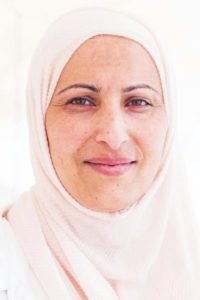Israeli And Palestinian Women: The Only Way Forward Is Together
It’s been almost four months since the latest escalation between Israel and Hamas— violence that left 243 Palestinians dead, including 100 women and children, and 12 Israelis, including two children. Although the violence has stopped and people worldwide have moved on to the next trending international crisis, Israelis, Palestinians, and their families in the diaspora continue to suffer the consequences of living in a constant state of war.
Because even when the bombs aren’t falling, and rockets aren’t ignited — tensions remain.
These tensions have festered for 73 years — since Israel declared its statehood from the British Mandate For Palestine after Britain’s 30-year rule over the region. The two sides are well entrenched in their positions and comprehend reality accordingly.
But, despite the varying understandings of the conflict, a few things remain true. Both Israelis and Palestinians, two groups with their own cultures, identities, and histories, are connected to what is known today as Israel. And they both live there. There are more than 9 million people in Israel, including Jews, Christians, and Muslims. Of that number, 1.9 million are Arabs, comprising roughly 20 percent of the population. Most are the descendants of Palestinians who remained in Israel after the 1948 Arab-Israeli war and automatically became citizens of the country. (There are also approximately 2.1 million Palestinians living in Gaza and over 3 million in the West Bank, often referred to as Palestinian territories.)
Although the two groups technically live among one another and next to each other, Israelis and Palestinians are growing up and living vastly different lives. Israeli and Palestinian children are learning different histories about the creation of Israel. They have different views of what life was like pre-Israel. And many say both peoples are groomed by their respective societies with a lack of understanding and empathy towards the other. Oftentimes, they say, this leads to each group misunderstanding and mischaracterizing the other.

